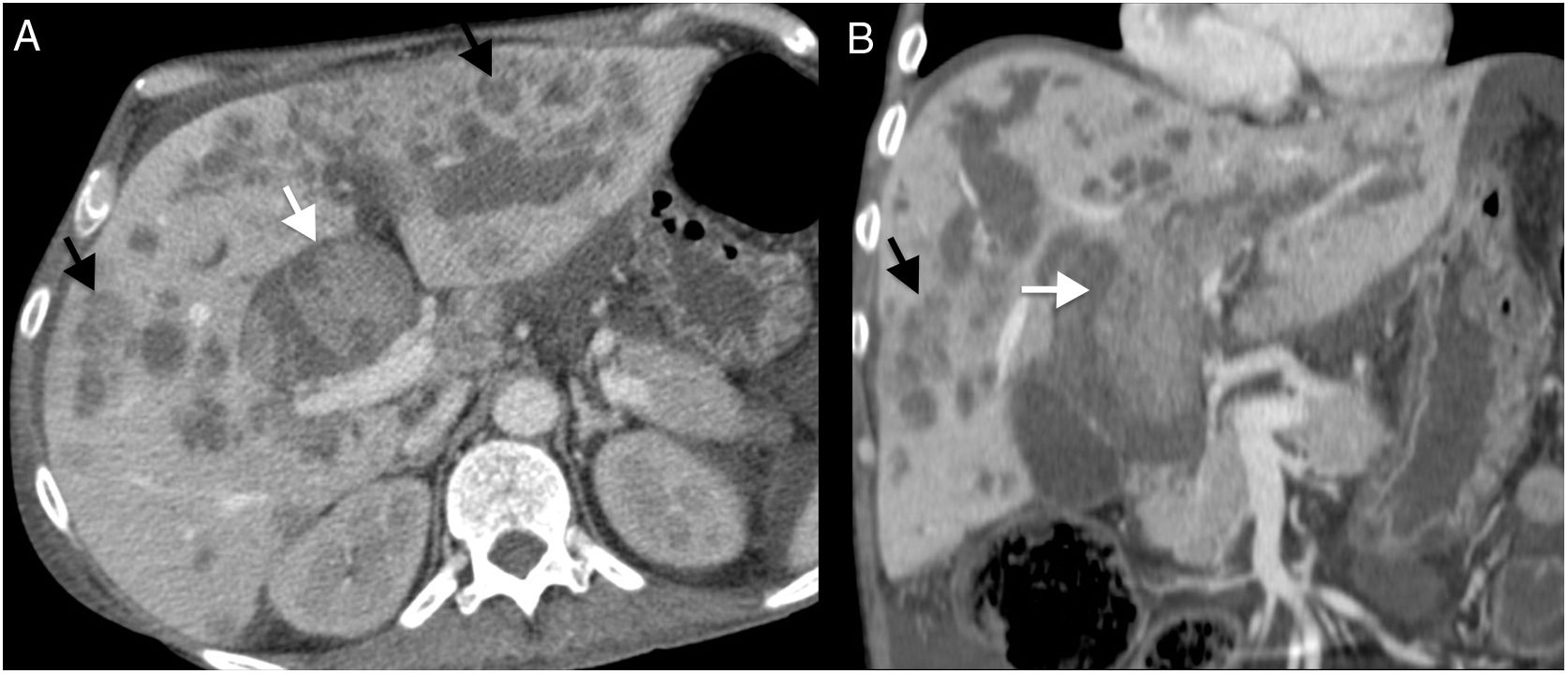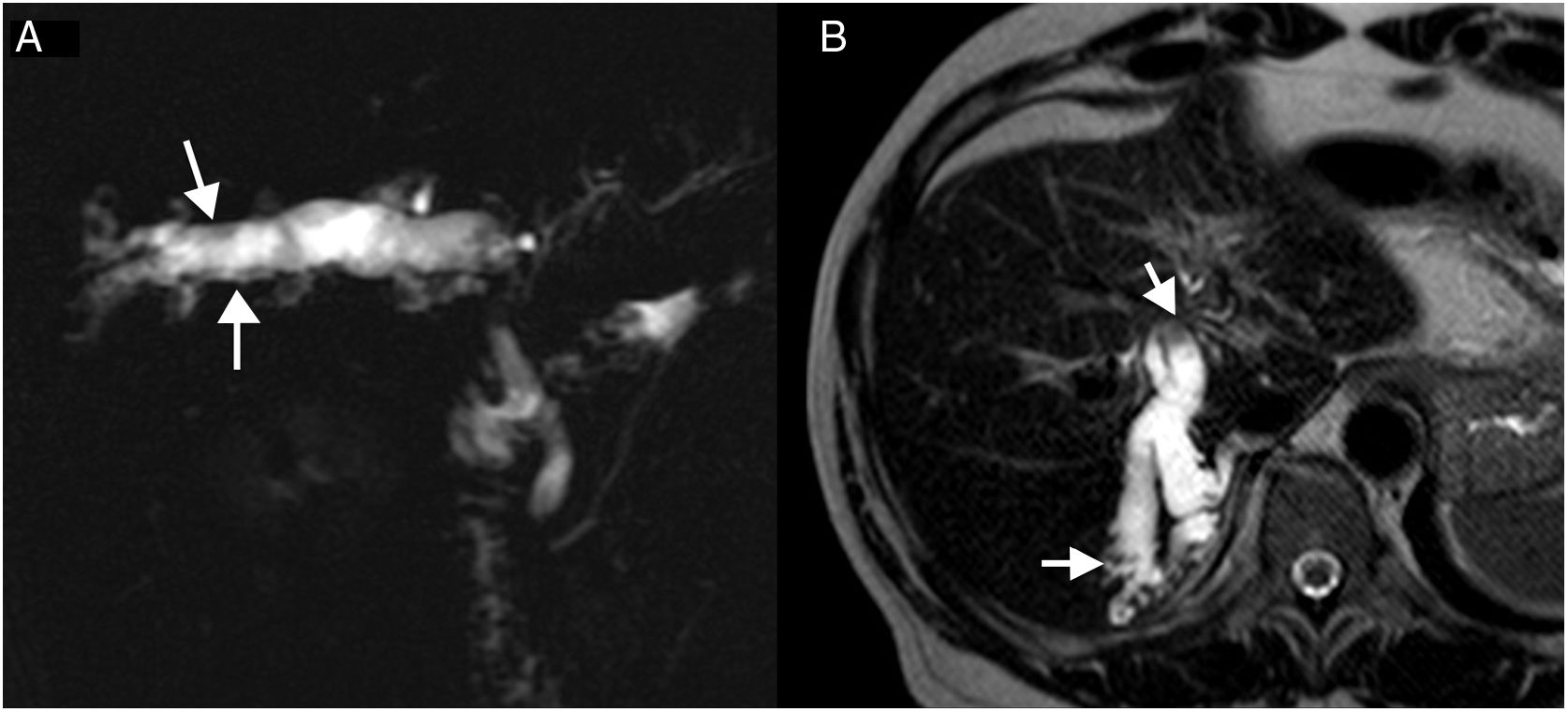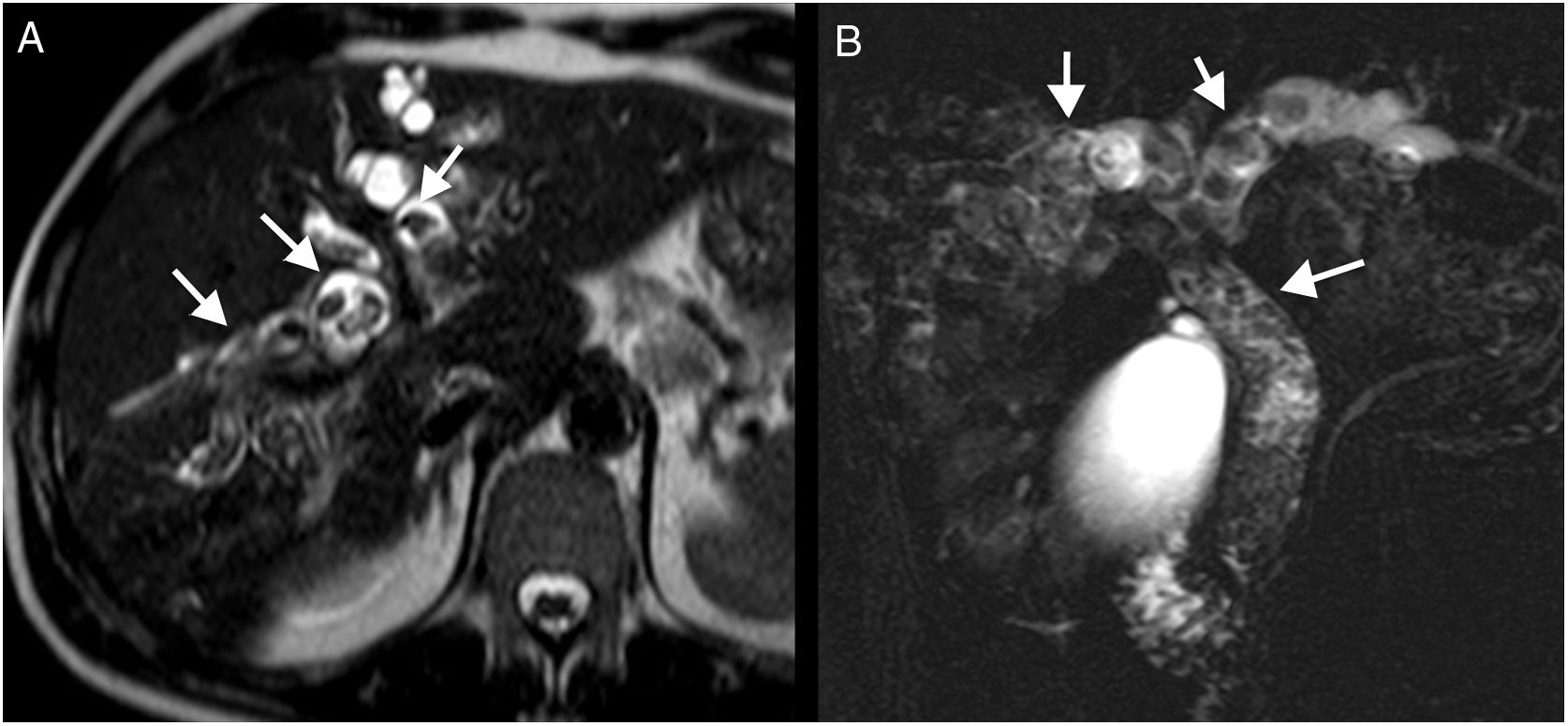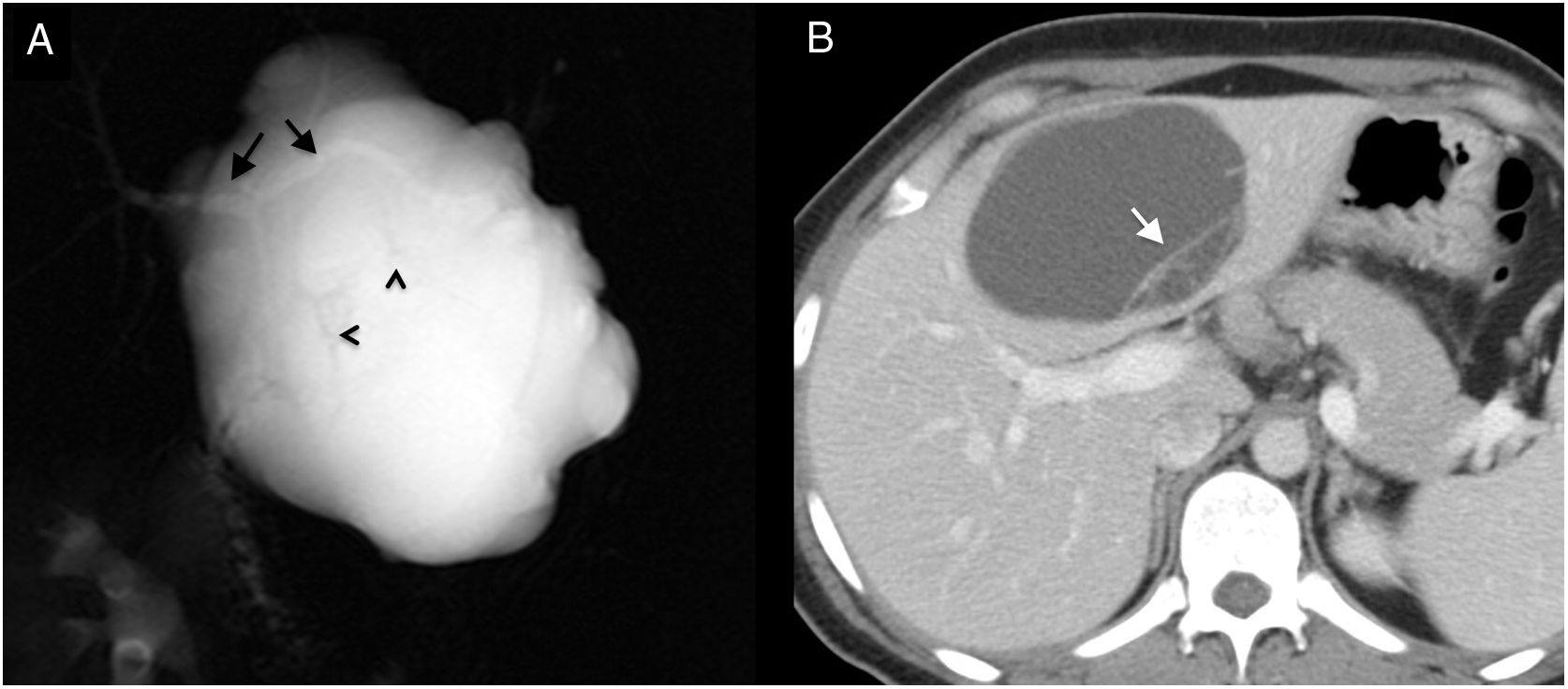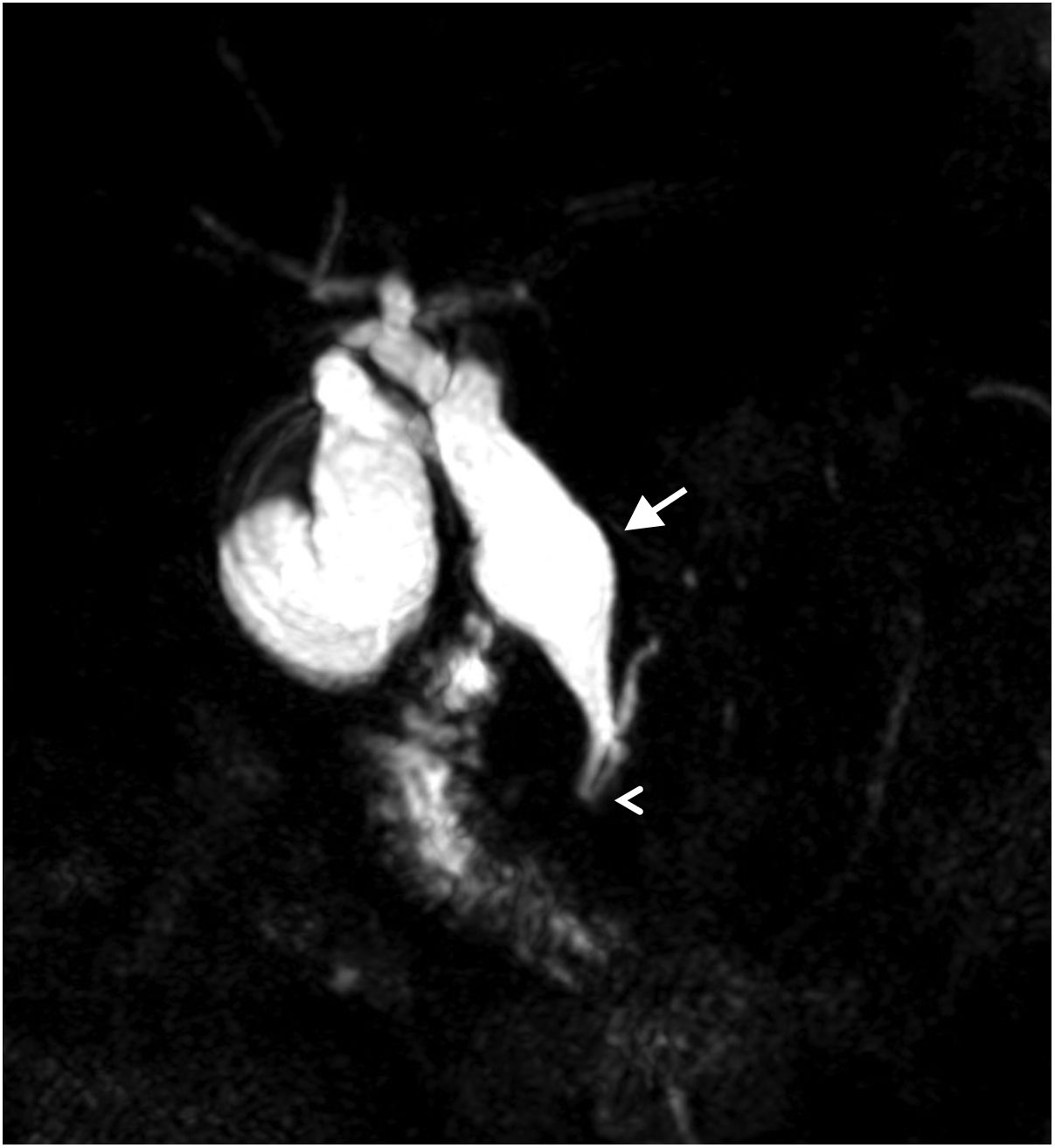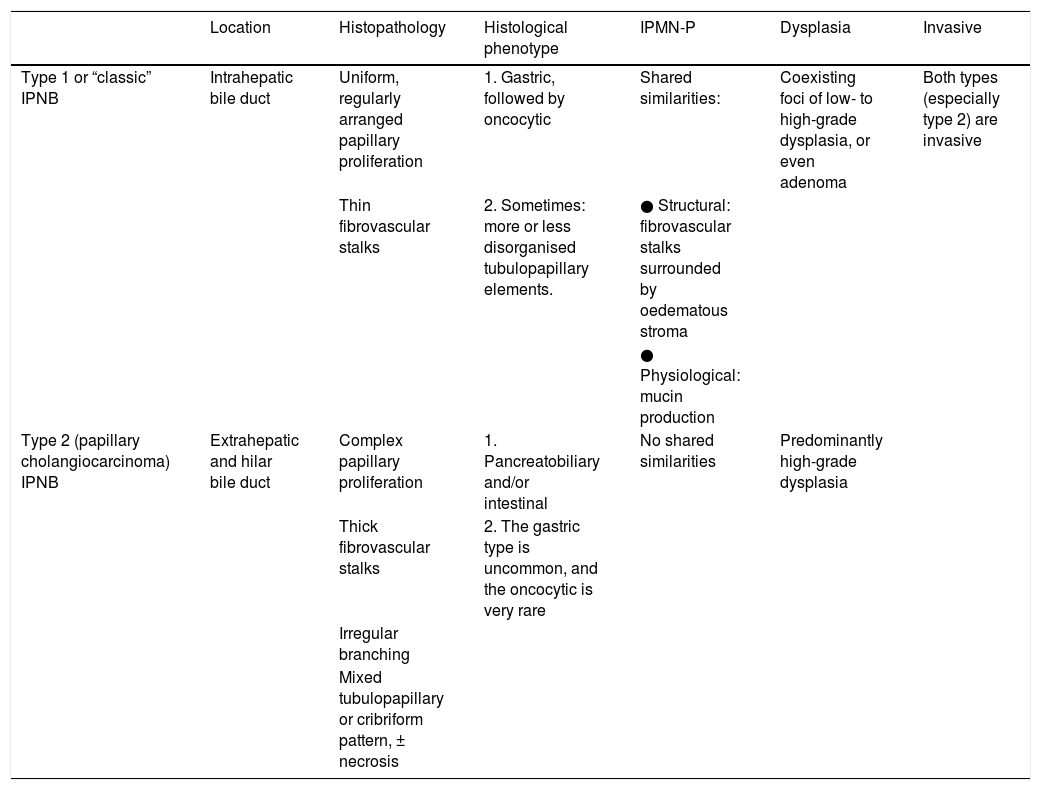Intraductal papillary neoplasm of the biliary tract (B-IPN) is a scarcely known entity in our daily practice due to its low prevalence. Until its new definition in the fourth edition of the WHO classification of the digestive tract tumors of 2010 the disease was grouped under a heterogeneous and imprecise terminology. In addition, in recent years there has been progress in the knowledge of its etiopathogenesis, its natural history and its findings in image. The purpose of this paper is to review these data underlining the radiological findings of the disease and its differential diagnosis.
La neoplasia papilar intraductal de la vía biliar (NPI-VB) es una entidad poco conocida en nuestro medio por su baja prevalencia. Hasta su nueva definición en la cuarta edición de la clasificación de la Organización Mundial de la Salud de los tumores del aparato digestivo publicada en 2010, la enfermedad se agrupaba bajo una terminología heterogénea y poco precisa. Además, en los últimos años se ha avanzado en el conocimiento de su etiopatogenia, su historia natural y sus hallazgos en imagen. El propósito de este artículo es repasar estos datos subrayando los hallazgos radiológicos de la enfermedad y su diagnóstico diferencial.











